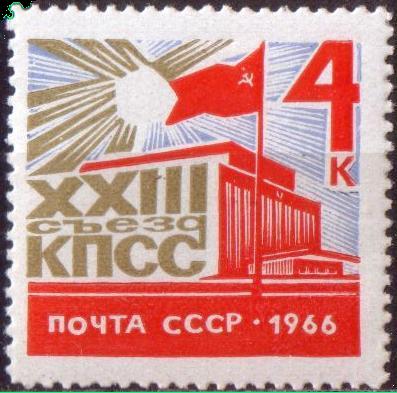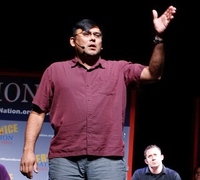 During the Communist era in Russia and China, religion was quite literally swept from public life. What fascinates Karrie Koesel is just how quickly religion has resurfaced in the past two decades—even faiths such as Pentecostal Christianity that had only a small prerevolutionary presence in both countries.
During the Communist era in Russia and China, religion was quite literally swept from public life. What fascinates Karrie Koesel is just how quickly religion has resurfaced in the past two decades—even faiths such as Pentecostal Christianity that had only a small prerevolutionary presence in both countries.
“They had really wiped it away,” said Koesel, an assistant professor of political science. “Synagogues, churches and temples were torn down or even converted into museums, grocery stores and swimming pools. Religion was considered a threat to the Communist mission, ‘the opiate of the masses.’”
But religion was hardly eradicated. Instead it went underground.
While the end of Communism in Russia and the beginning of economic liberalization in China has hardly led to an eruption of “religiosity,” it’s fair to say there’s been a slow, consistent resurgence. Russia in particular, even more determined than China to make a firm break from its Communist past, has dedicated state resources to rebuilding churches and mosques across the country.
For her doctoral work at Cornell University, Koesel spent 14 months in China and 10 months in Russia conducting fieldwork. She interviewed local government officials and organized religious groups, observing how the two interacted in countries where religious freedom is often unevenly applied.
“Most of the stories in the Western media focus on religious suppression,” she said. “But what I found was unexpected. I found a lot of cooperation between religious and state actors.”
Both countries are somewhat inconsistent in their policies, suppressing some religious groups while supporting others, and Koesel’s research has focused on exploring what causes these differences. Sometimes all it takes for a religious group to gain recognition is a little back scratching.
In China and Russia, for instance, all religious groups have to be registered, which is an easy way for government to curb or encourage different faiths. In one Chinese community that Koesel observed, the local government viewed a particular Christian church as foreign-based superstition and refused to register them. But that changed when the church pooled its resources to help pave a road into town, a project the local authorities didn’t have the money to fund.
“After that happened, the government posted a sign over the big main gates saying that Christians are welcome in the village,” she said. “I saw a lot of instances of this type of collaboration.”
For her next project, Koesel will be focusing on Pentecostal and charismatic Christians in Russia and China, religious communities that have experienced surprising growth in recent decades despite distrust by the governments. Pentecostals practice a charismatic brand of Christianity that emphasizes the role of the Holy Spirit in religious experience, which can manifest itself as speaking in tongues, faith healing and prophesy.
“In China the government is often suspicious of them at first because their services can be pretty intense,” she said. “But the relationship tends to improve once they realize that Pentecostals don’t have a political agenda. In fact, they’re usually supportive of the state.”
A relatively modern form of Christianity, Pentacostalism has been spreading widely across the globe, including China and Russia. Koesel is among 16 scholars from around the world recently awarded $3.5 million in grants to study this phenomenon. The project is being sponsored by the Center for Religion and Civic Culture at the University of Southern California and the John Templeton Foundation.
“Pentacostalism seems to draw a certain type of Christian. In Russia, it’s a very young crowd of middle-class college students,” she said. “In China, it should be interesting to learn more: Why are some turning away from Buddhism and leaning toward the charismatic churches?”
— Marc Dadigan




 Learn how experts across disciplines are together advancing green chemistry.
Learn how experts across disciplines are together advancing green chemistry.